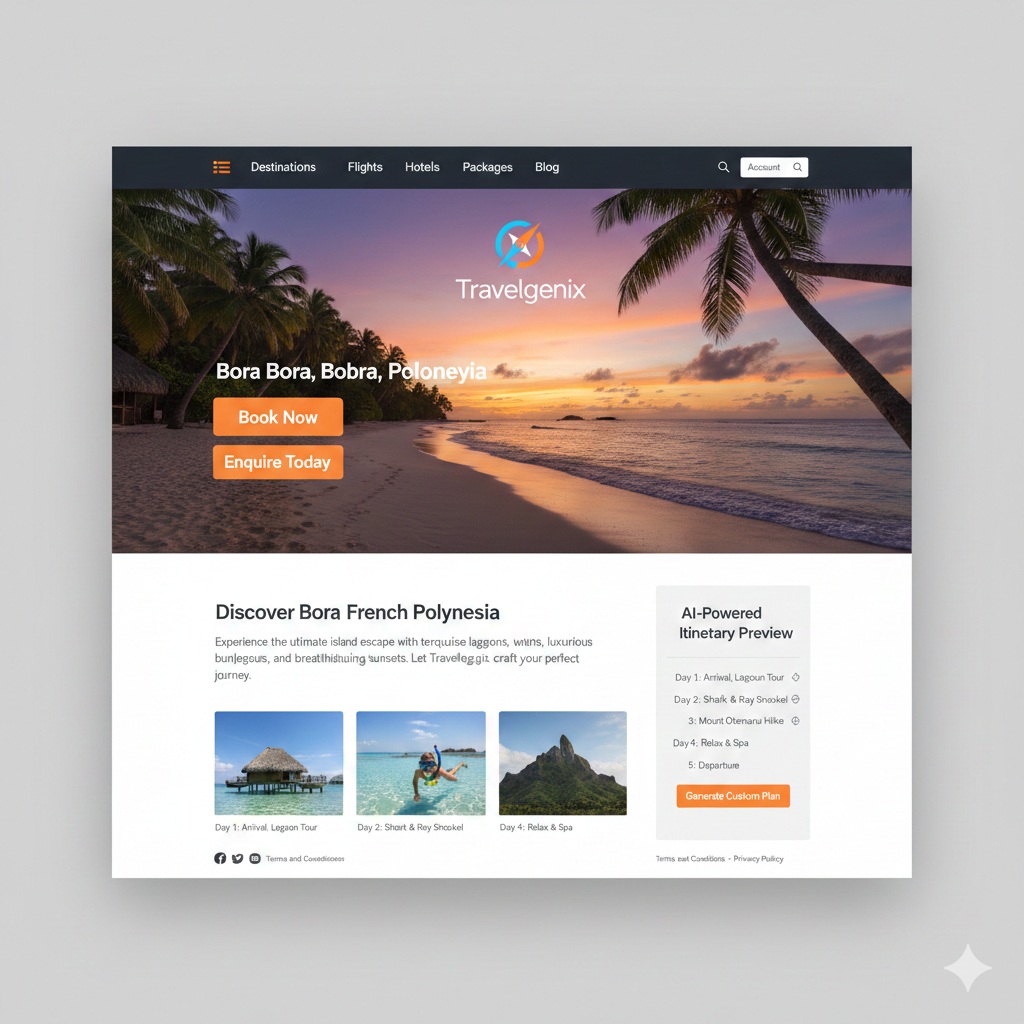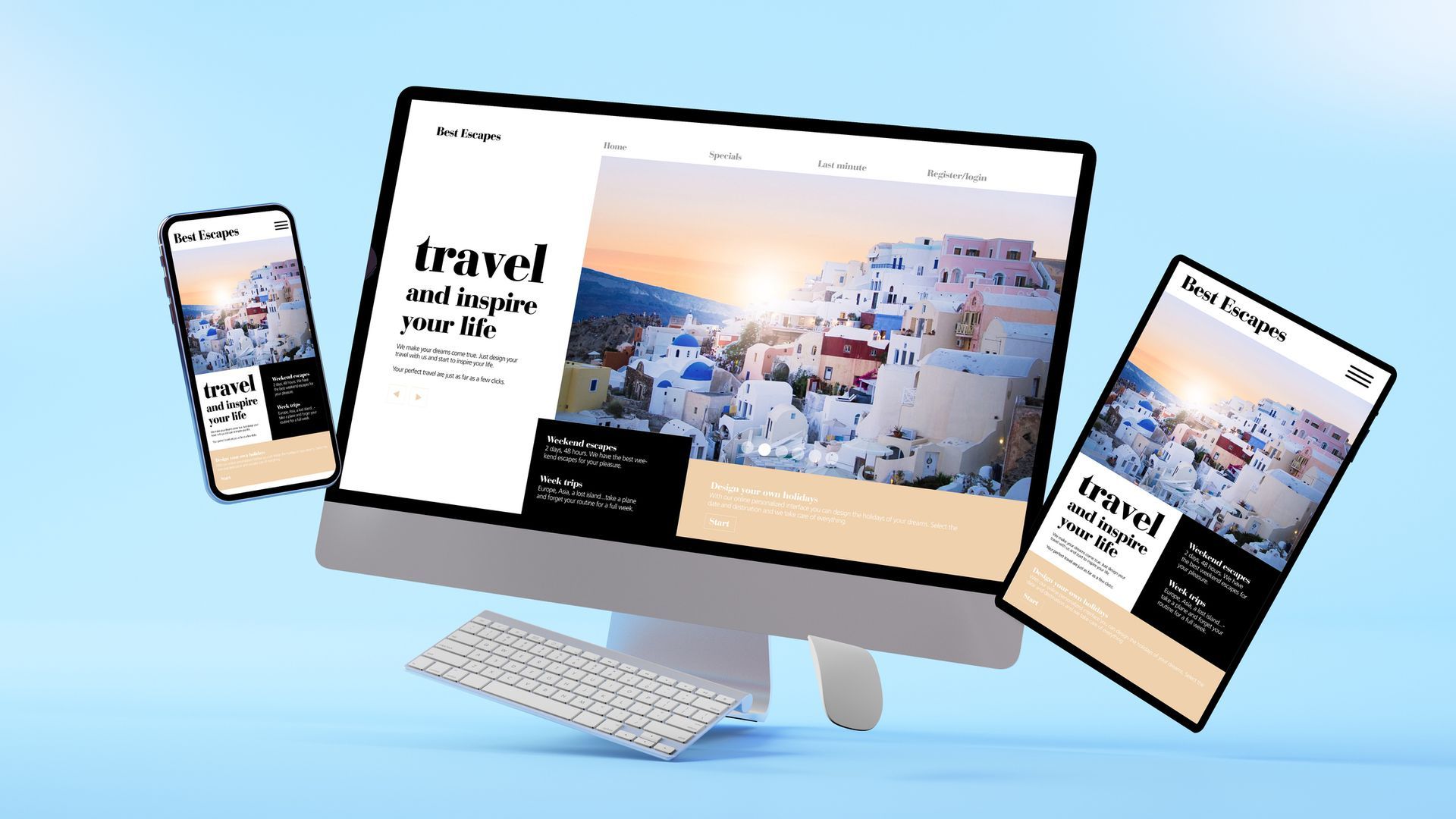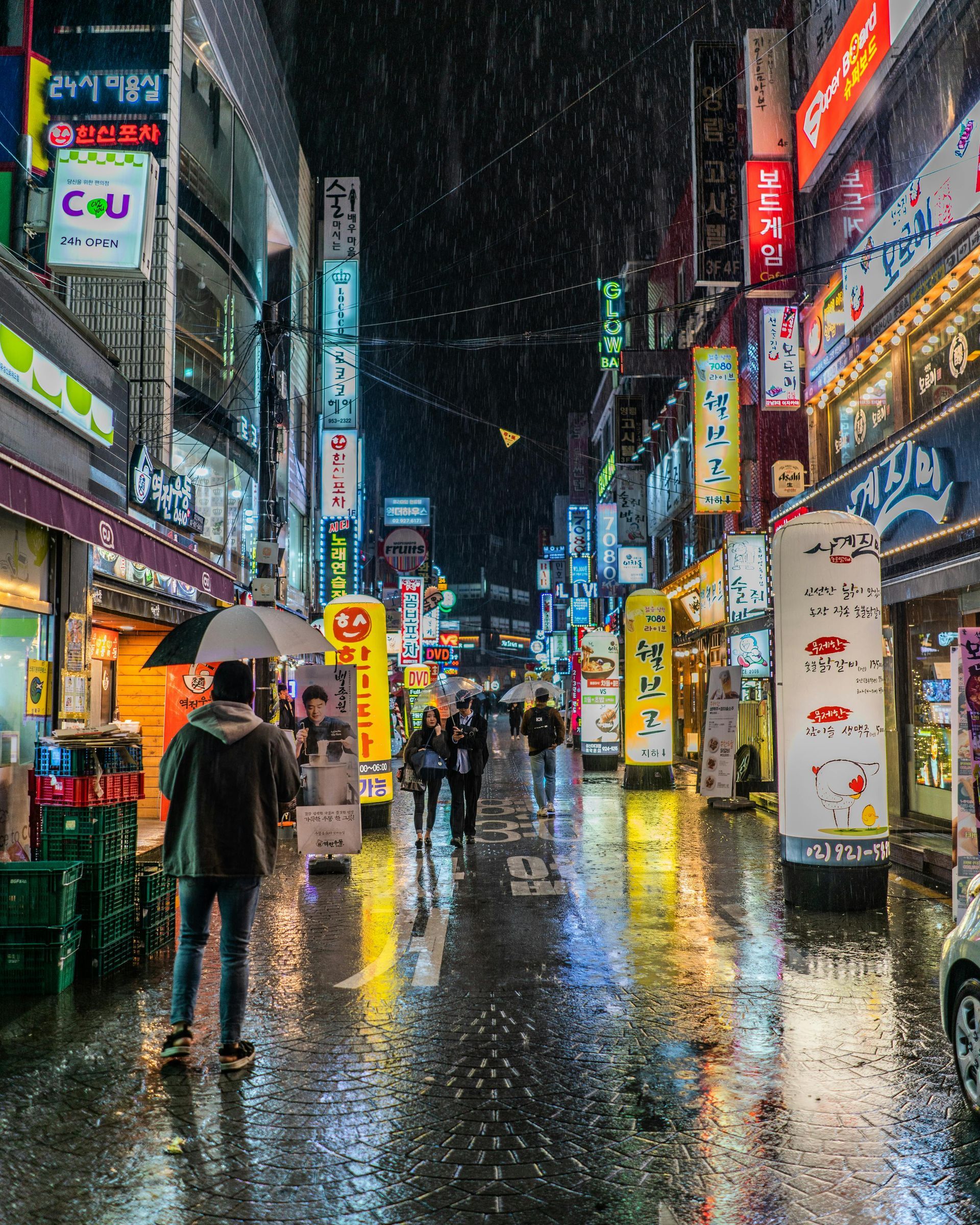How SME Travel Companies Can Create Loyalty And Keep Their Customers Engaged
SME travel companies face stiff competition in an industry dominated by larger players, making customer loyalty vital for sustainable growth. To keep your travellers engaged, you must focus on personalised service, offering tailored experiences that cater to their interests. Loyalty programmes with exclusive benefits encourage repeat bookings, while proactive communication ensures your customers feel valued. A strong presence on social media helps you connect and inspire your audience, keeping them engaged even between trips. Neglecting customer relationships can be dangerous, as dissatisfied travellers are quick to switch providers. Prioritising engagement ensures long-term trust and success.
Understanding Customer Loyalty in Travel Industry
While acquiring new customers is important, retaining your existing clients is even more valuable in the travel industry. Customer loyalty leads to repeat bookings, positive reviews, and long-term brand advocacy. In a competitive market where choices abound, travel businesses that foster strong connections with their customers create long-lasting relationships. By understanding the factors that influence loyalty, you can build trust and improve customer retention. Assume that enhancing customer experience through personalised services and engagement strategies is the key to sustained success.
Defining loyalty in the travel sector
On the surface, loyalty in the travel sector might seem like simple repeat business, but it goes much deeper. True loyalty is when customers not only return but also actively promote your services to others. It involves a sense of trust, emotional connection, and preference for your brand over competitors. With evolving customer expectations, loyalty now extends beyond traditional rewards programmes to personalised experiences and meaningful interactions. Assume that fostering genuine connections with your customers will result in sustained loyalty and continued business growth.
Key factors influencing customer retentionTravel businesses must focus on several key factors to keep their customers engaged and committed. These factors include:
- Personalisation: Providing tailored recommendations and offers that suit each traveller’s preferences.
- Seamless Booking Experience: Ensuring a hassle-free, intuitive, and smooth booking process.
- Exceptional Customer Support: Offering timely and effective assistance whenever needed.
- Consistent Communication: Keeping customers informed and engaged with relevant updates.
- Value-driven Loyalty Programmes: Rewarding repeat customers with meaningful benefits.
Assume that improving these areas will significantly enhance customer retention and foster brand advocacy.
To retain customers in the travel industry, you must build an experience that makes them return time and again. A highly personalised service strengthens the emotional bond between your clients and your brand, increasing the likelihood of repeat bookings. A smooth and convenient booking system ensures that customers do not switch to competitors due to frustration.
Additionally, an effective customer support system can prevent misunderstandings and improve trust. Lastly, offering valuable rewards through loyalty schemes strengthens long-term commitment. Assume that refining these aspects will enhance the overall customer experience and drive long-term loyalty.
Digital Engagement Strategies
There's no denying that a strong digital strategy is imperative for keeping your customers engaged and fostering loyalty. By leveraging online platforms, you can maintain continuous interaction with travellers, provide value-driven content, and build lasting relationships. Digital strategies such as social media engagement, mobile apps, and personalised communication ensure that your brand remains top-of-mind while delivering a tailored, seamless user experience.
Social media presence and content marketing
At a time when travellers rely heavily on social media for inspiration and planning, maintaining a strong presence on platforms like Instagram, Facebook, and LinkedIn is imperative. By sharing high-quality, engaging content—such as travel guides, customer testimonials, and behind-the-scenes updates—you create an emotional connection with your audience. Consistent interaction through comments, live sessions, and user-generated content further enhances engagement and keeps customers returning for more.
Mobile apps and personalised communications
Among the most effective digital tools at your disposal, mobile apps and personalised communications offer a streamlined customer experience. A well-developed app enables users to access itineraries, receive real-time updates, and benefit from exclusive offers, all in one place. Meanwhile, personalised messaging—via email or push notifications—enhances engagement by delivering targeted recommendations tailored to individual preferences.
Media-rich mobile apps elevate customer interaction by integrating interactive features such as live chat support, AI-generated travel suggestions, and customised loyalty programmes. By offering tailored promotions and timely updates based on user behaviour, you ensure that customers feel valued and connected to your brand. This personal touch not only enhances customer satisfaction but also increases repeat bookings, giving your SME travel business a competitive edge.
Customer Experience Management
One of the most effective ways to build loyalty in your SME travel company is through exceptional customer experience management. Understanding your customers' expectations and exceeding them at every touchpoint ensures they feel valued and are more likely to return. Prioritising seamless communication, easy booking processes, and thoughtful post-travel engagement will enhance their connection with your brand. By proactively addressing their needs and resolving issues efficiently, you establish trust and reliability. A well-managed customer experience encourages positive word-of-mouth and increases retention, helping your business grow in a competitive market.
Personalisation and Customisation
With personalised services and customised travel experiences, you make your customers feel valued and understood. Using data insights, you can tailor recommendations, exclusive offers, and itineraries that align with their preferences and past bookings. Offering personalised touches, such as greeting them by name, suggesting activities based on their interests, or acknowledging special occasions, fosters a deeper emotional connection. By making each trip feel unique rather than generic, you ensure repeat customers who appreciate the attention to detail. Leveraging personalisation not only improves the customer experience but also differentiates your business from larger, less tailored travel providers.
Service Quality and Consistency
Quality service and consistency are the foundation of long-term customer loyalty. Customers expect reliable, professional, and seamless experiences every time they interact with you. Whether it's booking a trip, requesting support, or experiencing the journey itself, each touchpoint should reflect the same level of excellence. Ensuring that your service remains consistent across different channels and locations instils confidence in your brand. When customers trust that they’ll receive high standards each time, they are more likely to choose your company repeatedly instead of seeking alternatives.
But maintaining consistent quality requires ongoing evaluation and refinement. Regularly seeking feedback and reviewing performance helps you identify strengths and areas for improvement. Investing in staff training and utilising technology to streamline services can help ensure dependable experiences for every traveller. You must also establish partnerships with reliable suppliers who align with your service standards, guaranteeing a smooth journey for your customers. By prioritising continuous improvement, you reinforce your reputation for excellence and make customers more inclined to stay loyal.
Loyalty Programme Development
For SME travel companies, developing a robust loyalty programme can significantly enhance customer retention and brand engagement. A well-structured system rewards repeat bookings and incentivises long-term relationships, ensuring your clients continue to choose your services over competitors. By offering a mix of personalised discounts, exclusive perks, and experiential rewards, you create a sense of exclusivity that keeps customers involved with your brand. Without an attractive loyalty programme, customer retention can become a challenge, leading to lost revenue and missed opportunities for growth.
Reward Structures and Incentives
An effective loyalty programme should offer a mix of tangible benefits and experiential rewards that align with your customers' travel preferences. Whether through points-based systems, referral bonuses, or exclusive early access to new packages, providing enticing incentives ensures continued engagement. A programme without clear and accessible rewards may fail to keep customers motivated, so ensure your system is easy to use and offers meaningful benefits. By structuring rewards to encourage repeat bookings, you create a cycle of loyalty that benefits both your business and your customers.
Partnership Opportunities and Added Value
Added value through strategic partnerships can give your loyalty programme an extra edge, enhancing the appeal of your offerings. By collaborating with local businesses, airlines, hotels, or experience providers, you can create exclusive opportunities for your customers. Providing diverse rewards beyond discounts—such as VIP access, complimentary services, or unique local experiences—can set your company apart and increase long-term loyalty. These added perks make your programme more enticing and ensure customers see continued reasons to engage with your brand.
It is vital to seek partnerships that complement your services and enhance the overall customer journey. Whether it’s offering discounts on airport transfers, exclusive local dining experiences, or priority access to attractions, partnered benefits make your loyalty scheme more compelling. Working with trusted brands also improves credibility and strengthens your value proposition. Customers are more likely to remain engaged when they see a well-rounded rewards system that goes beyond transactional benefits, offering unique experiences that enhance their travels.
Data Analytics and Customer Insights
Your SME travel company can leverage data analytics to understand customer preferences, tailor personalised offers, and predict future travel trends. By utilising customer insights, you can enhance the traveller experience, increase engagement, and build long-term loyalty. Ignoring data trends can result in missed opportunities, while effective analysis helps you optimise marketing strategies and improve customer retention. With the right tools, you gain the ability to track booking patterns, personalise communication, and identify areas for improvement. A data-driven approach gives you a competitive edge in a rapidly evolving travel industry.
Customer behaviour tracking
Tracking customer behaviour enables you to understand how travellers interact with your services, from browsing destinations to completing bookings. Identifying patterns in browsing habits, preferred travel times, and frequent destinations allows you to refine marketing campaigns and offer tailored deals. By monitoring engagement across channels, you can determine the most effective touchpoints for customer communication. Failing to track behaviour can lead to ineffective promotions, while informed decisions based on analytics drive higher conversion rates and customer satisfaction.
Feedback implementation and improvement
By collecting and applying customer feedback, you demonstrate that their opinions matter, strengthening trust and loyalty. Neglecting feedback can lead to dissatisfaction and lost business, whereas addressing concerns fosters positive experiences. Monitoring reviews, surveys, and direct comments gives you valuable insights into service strengths and areas requiring enhancement. Consistently refining services based on user input ensures that you meet evolving expectations and maintain a strong reputation in the travel sector.
Also, integrating feedback into your operational strategy encourages repeat business and referrals. When you act on customer suggestions, it shows that you are reactive and committed to improvement. A well-implemented feedback system helps resolve issues before they escalate, reducing the risk of negative publicity. Offering incentives for feedback participation also increases engagement, providing you with even more actionable insights. Ignoring customer concerns can damage your brand, whereas proactive adaptation positions your company as a trusted and customer-focused travel provider.
Building Long-term Relationships
To create lasting customer loyalty, you need to go beyond one-time bookings and nurture long-term relationships. By providing personalised experiences, exceptional service, and ongoing engagement, you build trust and encourage repeat business. Your ability to understand customer preferences and anticipate their needs will set you apart from competitors. A strong relationship means clients will turn to you for future travel plans and recommend you to others. Customer retention is more cost-effective than attracting new clients, making long-term engagement a key element of sustained business success.
Customer service excellence
Before a client even books a trip, they need to feel valued and supported. Outstanding customer service at every stage builds confidence and fosters loyalty. Whether through swift responses, knowledgeable recommendations, or problem-solving expertise, your approach must be proactive and customer-focused. Providing a seamless, stress-free experience from the first interaction reassures travellers that they are in good hands. Responsive communication, attention to detail, and a genuine commitment to their needs make a lasting impression, encouraging continued engagement and repeat business.
Post-trip engagement
The relationship doesn’t end once your clients return home. Keeping in touch after their trip reinforces their connection to your brand and increases the likelihood of repeat bookings. A personalised message thanking them for their business, gathering feedback, or providing exclusive offers for future travel demonstrates that you value their experience. Engaging with customers post-trip helps turn a one-time traveller into a loyal client. By maintaining communication, you can remind them of their trip’s highlights and keep your business top of mind for future adventures.
Customer engagement after a trip is your chance to strengthen loyalty and differentiate yourself from competitors. Sending a follow-up survey not only helps you improve your services but also shows that you care about their feedback. Sharing relevant content such as destination guides, travel tips, or exclusive deals via email or social media keeps them engaged beyond their initial booking. A satisfied customer is far more likely to return if they feel valued and appreciated long after their trip has ended.
To wrap up
With these considerations, you can strengthen customer loyalty by delivering personalised experiences, leveraging digital tools, and maintaining consistent engagement. Offering flexible booking options, loyalty rewards, and exceptional customer service ensures travellers feel valued and encouraged to return. Additionally, sharing insightful content and fostering community interaction keeps your audience engaged beyond their trips. By staying attentive to evolving customer needs and market trends, you position your travel business for long-term success. Prioritising these strategies helps you not only retain existing clients but also attract new ones, fostering sustainable growth in a competitive industry.




